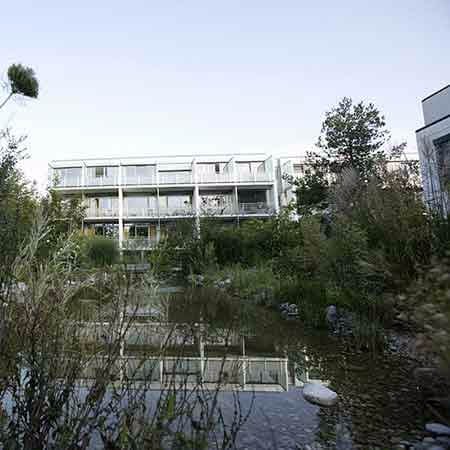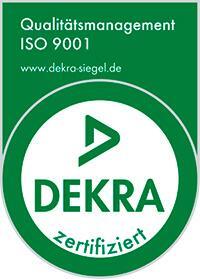Bladder stones are a disease characterized by the presence of stones in the corresponding organ. They are formed due to impaired urine outflow, infections, or metabolic diseases. The risk of urine stones is influenced by nutrition, on which urine pH levels depend. You can go abroad to get rid of urolithiasis once and for all. Developed countries use modern methods of treatment that are sparing and safe. On the Booking Health website, you can find out the cost of treatment and choose the most suitable medical care program at a favorable price.
Content
- Causes
- Symptoms
- Diagnostics
- Conservative therapy
- Endoscopic treatment
- Percutaneous treatment
- Surgical treatment
- Transurethral resection of the prostate
- Where to undergo your treatment of bladder stones?
Causes
The stones of the bladder account for up to 5% of all urine stones. They are rare, especially in countries with developed medicine, because infections are the main cause. In older men, stones often develop due to a prostate adenoma or due to impaired urine outflow. Other predisposing factors may be urethral strictures, bladder diverticula, neurogenic bladder, and pelvic organ prolapse in women.
Symptoms
The following are the main symptoms of the stones of the bladder:
- difficulty urinating;
- painful urination;
- frequent urination;
- weak urine stream;
- feeling of incomplete bladder emptying;
- blood in the urine;
- urinary urgency.
A sudden cessation of urination and terminal hematuria (bleeding at the end of urination) are considered classic symptoms of a large calculus.
Diagnostics
All symptoms of the disease are nonspecific. An ultrasound and a cystoscopy are therefore required to confirm the diagnosis. During the diagnostics, doctors also look for stones in the kidneys and ureters. A CT scan is the most accurate method of non-invasive pathology diagnostics because it not only determines the location and size of urinary stones but also allows doctors to judge their composition by density and assess the prospects for drug dissolution.
Conservative therapy
Some stones can be dissolved with drugs.
Uric acid stones are formed due to metabolic disorders and low urine pH levels. In this case, it is enough to raise the pH levels to 6.5-7 so that the stones dissolve within a few months. Patients take potassium citrate to raise the pH levels. The dose is selected individually under the control of urine pH testing. Sodium bicarbonate can also be used to raise the pH levels.
If the stones were formed due to infections, they can be dissolved with citric acid, glucono-delta-lactone, and magnesium carbonate. The drugs, however, have to be administered retrogradely (through the urethra), and this has to be done many times. Therefore, in practice, the treatment method is used very rarely, and stones of this type are usually simply removed.
With prolonged bladder catheterization, phosphate stones may develop. They form at an alkaline urine pH and dissolve with acids. Doctors can dissolve these bladder stones with an acetic acid solution given by instillation (through the urethra).
Endoscopic treatment
For more than 50 years, the main treatment for the stones of the bladder has been their endoscopic removal. This is a sparing technique, after which long-term rehabilitation is not required. Stones are destroyed by various energies and then washed out of the bladder.
Mechanical lithotripsy. Due to the large volume of the bladder, a Mauermayer mechanical lithotripter can be used to treat this organ. This device can destroy even very high-density stones. It can also be used for removing stones from small diverticula (bladder wall protrusions). There are also other models of mechanical lithotripters. This procedure is best done at a reputable hospital, as an inexperienced doctor can capture and injure the bladder wall.
Electrohydraulic lithotripsy. Physicians in developed countries do not use electrohydraulic devices for removing bladder stones. This is due to the fact that such stones are often displaced and can damage the mucous membrane of the organ. In countries with a low level of medical development, however, the technique is still used. This is the most powerful method of contact stone fragmentation that is effective for calculi of any density.
Ultrasonic lithotripsy. This treatment approach uses ultrasonic waves with a frequency of 20-27 kHz, which cause the lithotriptor to vibrate and destroy the stone when it comes into contact with its surface. A probe of the ultrasonic lithotripter is hollow, which allows for crushing stones and washing out small stones from the bladder at the same time. Ultrasound, however, does not work well with high-density stones, which increases the risk of failure or increases the duration of the procedure. With the right selection of patients, the effectiveness of the technique exceeds 95%. And what is more, patients have a minimal risk of complications.
Pneumatic lithotripsy. This method uses compressed air to crush the stones. This is one of the most advanced techniques, as it is safe, very effective, and allows doctors to achieve the maximum level of stone fragmentation with an average procedure time of 42 minutes. This method is sparing on the bladder mucosa and very rarely leads to any complications. However, because moving and not very large stones can shift quickly, injuring the bladder, the technique has limitations.
Doctors at modern hospitals often combine ultrasonic and pneumatic lithotripsy. Their shortcomings can then be completely leveled. Ultrasound is used to crush smaller and mobile stones, while a pneumatic method helps destroy large immovable bladder stones.
Laser lithotripsy. This method of treatment uses radiation that is absorbed by the stone. Its surface gradually evaporates, and the large stone cracks. The rapid release of heat forms a shock wave. Vapor bubbles form in the liquid medium, which lead to pressure drops and destroy the calculus. At the same time, adjacent soft tissues are not affected. The laser is suitable even for crushing large stones. This type of energy is compatible with flexible instruments. The treatment is therefore more sparing, reducing the risk of damage to the walls of the organ and the formation of urethral strictures.
Percutaneous treatment
If removing stones through the urethra is impossible, doctors insert a pointed laparoscopic trocar through a 1 cm long incision 2 cm above the pubis. The procedure is performed under local anesthesia.
This approach can be used in children so as not to injure the urethra, as well as in adult patients if the anatomical features of the structure of the urethra do not allow for endoscopic treatment.
Surgical treatment
The surgical treatment of bladder stones is very rarely performed through a large incision above the pubis. This is a traumatic surgical procedure that is sometimes used to remove large and multiple calculi that cannot be fragmented by endoscopic methods. The technique is suitable for removing stones of any size, including those that are immovable ("stuck" to the bladder wall).
Open surgery is still considered standard in some countries with poor medical development. It is also used in hospitals with a lack of equipment for endoscopic treatment.
Open operations can also be performed in the case of simultaneous treatment of a prostate adenoma and urolithiasis disease. During surgery, doctors can remove large stones and the prostate larger than 150 mL with a transvesical adenomectomy.
Some hospitals perform robot-assisted operations through short incisions. They are performed in combination with a cystoscopy. The stones are removed through a port in the navel. Such interventions are less traumatic and safer, but their cost is higher, so robot-assisted operations for the stones of the bladder have not yet become widespread.
Transurethral resection of the prostate
Two-thirds of men with bladder stones have benign prostatic hyperplasia. Such patients are indicated for immediate or delayed treatment of the disease, otherwise they will have stones again.
Transurethral resection is used to remove the prostate up to 75 mL. Doctors insert instruments through the urethra to remove the enlarged prostate gland. This is a minimally traumatic intervention, after which patients recover quickly.
For prostate volumes greater than 75 mL, an open prostatectomy is considered the standard approach. Doctors in developed countries, however, prefer an advanced method of treatment, namely holmium laser enucleation of the prostate. This technique is effective for any size of the prostate and allows specialists to perform operations without any skin or soft tissue incisions, from the inside of the bladder with an approach through the urethra.
Where to undergo your treatment of bladder stones?
You can undergo your treatment abroad. Healthcare professionals in developed countries use the very latest treatment methods that allow them to quickly get rid of the symptoms of the disease, safely crush and remove stones, and prevent their recurrence.
There are a few reasons for you to undergo your treatment abroad. These are the following:
- sparing endoscopic procedures are mostly used to treat stones instead of traumatic operations through an incision above the pubis;
- the stones are fragmented with modern technologies, mainly with laser, ultrasonic, or pneumatic methods instead of mechanical and electrohydraulic procedures;
- a low risk of complications;
- surgeons perform minimally invasive operations through a short incision above the pubis in children;
- doctors offer simultaneous treatment of bladder stones and prostate adenomas in men;
- simultaneous removal of calculi from the bladder, kidneys, and ureters can be performed.
You are welcome to visit the Booking Health website to find out the prices of procedures and operations if you want to undergo your treatment abroad. On our website, you can compare the cost of treatment at different hospitals and choose a medical care program at a favorable price. When you make your appointment through Booking Health, the cost of treatment will be lower than usual. The price of the program will be reduced due to the absence of taxes for foreign patients.
If you make an appointment for your treatment abroad through the Booking Health service, you will get insurance that will cover medical expenses not included in the program. This means that the initial cost of treatment will not increase.
Please leave your request on the Booking Health website to get a consultation of a urologist and undergo your treatment abroad. Our employees will help you organize your trip. They will book hotel and airline tickets for you, help with documents, translate medical records, meet you at the airport abroad, and take you to the hospital by car. We will help you keep in touch with the hospital, your attending physician, and get additional consultations after the completion of your medical care program.
Authors:
The article was edited by medical experts, board-certified doctors Dr. Nadezhda Ivanisova and Dr. Vadim Zhiliuk. For the treatment of the conditions referred to in the article, you must consult a doctor; the information in the article is not intended for self-medication!
Sources:
MedicineNet
PubMed
Sience Direct
















